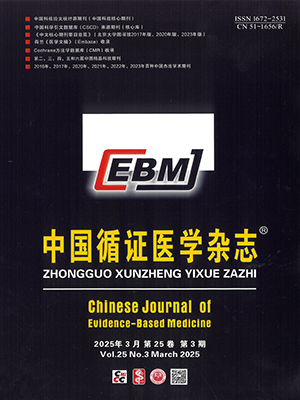Objective To understand the attitude of xinjiang medical workers towards national essential drugs and the requirements and suggestions about training, so as to provide necessary baseline information for spreading the application of Essential Medicine List (EML) in Xinjiang.
Methods A questionnaire designed by Chinese Evidence-Based Medical Center was distributed for a face-to-face survey. The data were double-input by EpiData 3.1 with double checks, and statistically analyzed by EXCEL with constituent ratio as the statistical index.
Results A total of 80 questionnaires were distributed and then retrieved with 100% recovery rate. Respondents employed in six public hospitals at or above the county level and in six community health service centers as well. a) The accuracy of 80 respondents about the basic concepts of essential drugs, serviceable range of EML, and the relationship between EML and basic medicare drug list were 72.6%, 89.5% and 17.8%, respectively; b) 33.8% (27) of the respondents always firstly considered using the essential medicine in their prescription, and 22.5% (18) of the respondents considered using essential drugs in most cases; c) EML were welcome loy 35% (28) of the respondents; d) The problems of practicing EML issued by respondents were the following in order: doctors’ awareness of essential drugs and prescribing habit of doctors, the safety and effectiveness of essential drugs, lower income, patients’ awareness of essential drugs and preference to medication, and the applicability of the essential medicine list; e) The main approaches to getting information about essential drugs were academic seminars (37 person-time, 46.2%), professional journals (27 person-time, 33.8%) and documents (25 person-time, 31.2%); f) There were 46 respondents who had participated in EML training once or twice; g) The total EML training or learning time of 34 respondents (42.5%) was less than one week; and h) Respondents suggested that, the training objects should be medical personnel, pharmacists and administrators; the training contents should be rational drug use, formularies and the use of essential drugs, drug policy, and the effectiveness of integration of the traditional Chinese medicine and western medicine; the training methods should be theoretical teaching and online learning; and the training place should be hospitals, homes or offices.
Conclusion It is extremely urgent to improve doctors’ awareness of EML and strengthen the training of usage, and to conduct the research on EML applicability and effectiveness evaluation, financial subsidies, medical staff income, purchase and reimbursement problems.
Citation: LI Min,LIU Yu,ZHANG Tao,ZHENG Yingsheng,ZHANG Lei,XU Peiru. Investigation on the Awareness of and Training Needs for the National Essential Medicine (2009 version) in Medical Workers in Xinjiang Province. Chinese Journal of Evidence-Based Medicine, 2011, 11(1): 29-34. doi: 10.7507/1672-2531.20110006 Copy
Copyright © the editorial department of Chinese Journal of Evidence-Based Medicine of West China Medical Publisher. All rights reserved




